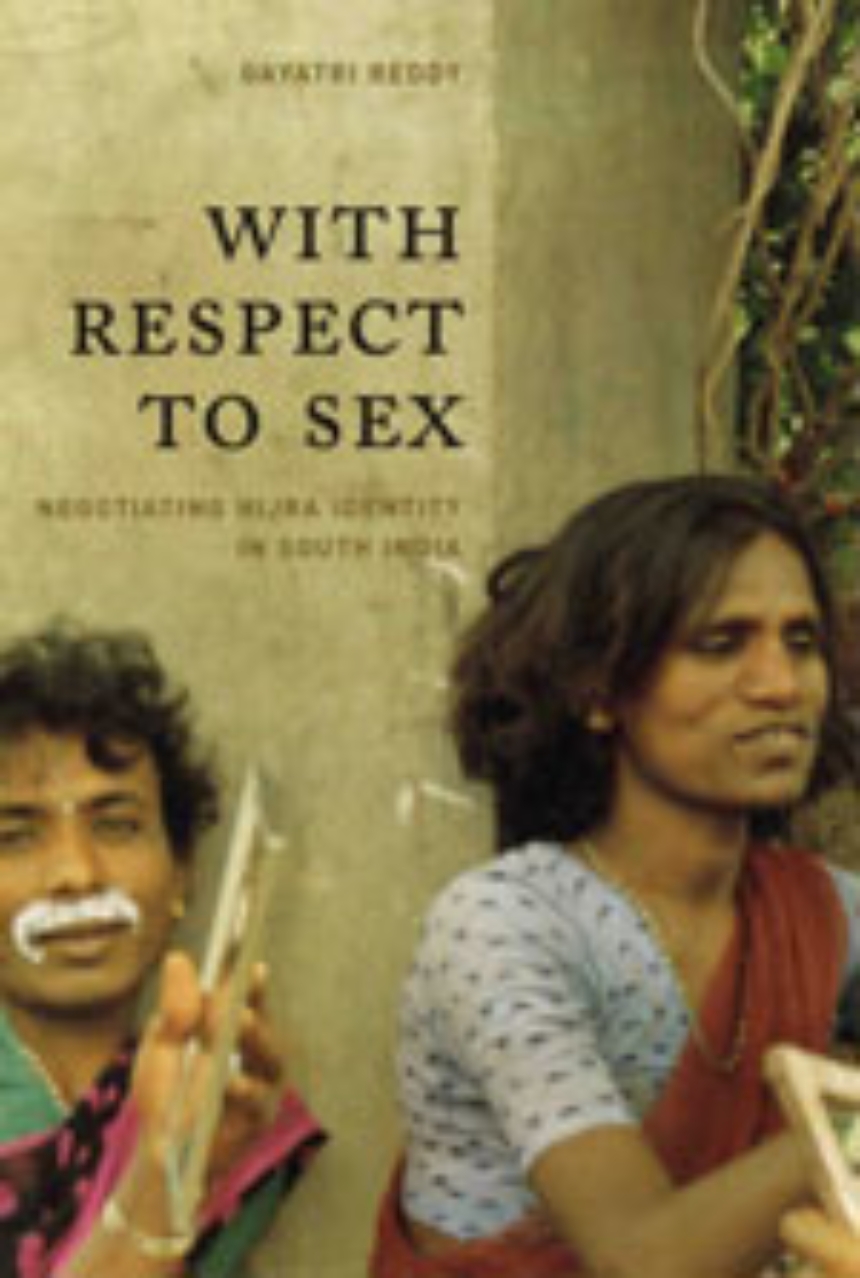With Respect to Sex
Negotiating Hijra Identity in South India
9780226707563
9780226707556
9780226707549
With Respect to Sex
Negotiating Hijra Identity in South India
With Respect to Sex is an intimate ethnography that offers a provocative account of sexual and social difference in India. The subjects of this study are hijras or the "third sex" of India—individuals who occupy a unique, liminal space between male and female, sacred and profane.
Hijras are men who sacrifice their genitalia to a goddess in return for the power to confer fertility on newlyweds and newborn children, a ritual role they are respected for, at the same time as they are stigmatized for their ambiguous sexuality. By focusing on the hijra community, Gayatri Reddy sheds new light on Indian society and the intricate negotiations of identity across various domains of everyday life. Further, by reframing hijra identity through the local economy of respect, this ethnography highlights the complex relationships among local and global, sexual and moral, economies.
This book will be regarded as the definitive work on hijras, one that will be of enormous interest to anthropologists, students of South Asian culture, and specialists in the study of gender and sexuality.
Hijras are men who sacrifice their genitalia to a goddess in return for the power to confer fertility on newlyweds and newborn children, a ritual role they are respected for, at the same time as they are stigmatized for their ambiguous sexuality. By focusing on the hijra community, Gayatri Reddy sheds new light on Indian society and the intricate negotiations of identity across various domains of everyday life. Further, by reframing hijra identity through the local economy of respect, this ethnography highlights the complex relationships among local and global, sexual and moral, economies.
This book will be regarded as the definitive work on hijras, one that will be of enormous interest to anthropologists, students of South Asian culture, and specialists in the study of gender and sexuality.
312 pages | 11 halftones, 1 line drawing, 1 map, 1 table | 6 x 9 | © 2005
Worlds of Desire: The Chicago Series on Sexuality, Gender, and Culture
Anthropology: Cultural and Social Anthropology
Asian Studies: South Asia
Reviews
Table of Contents
Acknowledgments
1. The Ethnographic Setting
2. Hijras, Individuality, and Izzat
3. Cartographies of Sex/Gender
4. Sacred Legitimization, Corporeal Practice: Hindu Iconography and Hijra Renunciation
5. "We Are All Musalmans Now": Religious Practice, Positionality, and Hijra/Muslim Identification
6. (Per)Formative Selves: The Production of Gender
7. "Our People": Kinship, Marriage, and the Family
8. Shifting Contexts, Fluid Identities
9. Crossing "Lines" of Subjectivity: Transnational Movements and Gay Identifications
10. Conclusion
Appendix
Notes
Glossary
References
Index
1. The Ethnographic Setting
2. Hijras, Individuality, and Izzat
3. Cartographies of Sex/Gender
4. Sacred Legitimization, Corporeal Practice: Hindu Iconography and Hijra Renunciation
5. "We Are All Musalmans Now": Religious Practice, Positionality, and Hijra/Muslim Identification
6. (Per)Formative Selves: The Production of Gender
7. "Our People": Kinship, Marriage, and the Family
8. Shifting Contexts, Fluid Identities
9. Crossing "Lines" of Subjectivity: Transnational Movements and Gay Identifications
10. Conclusion
Appendix
Notes
Glossary
References
Index
